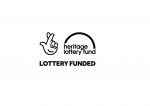Carnival Chronicles tells the love story of Cyril and Melody with the backdrop of the Windrush migration, racism and carnival celebration in Leeds.
The play was created using stories of Caribbean migrants in Leeds and further that were gathered by historian Joe Williams and his team.
Below you will find extracts from the play and further descriptions.
CARNIVAL RECOLLECTION
What struck me in listening to the interviews, was how the older generation spoke of the origins of carnival: slave dancing, masquerade, making music from jumbie beads, car rims and oil drums. It was deeply rooted in history. Historical accuracy is important for preservation of one’s culture. Some the interviewees were concerned that the younger generation was losing this aspect of carnival. It was important to note that carnival is more than ‘a party in the park – another fete’.
1960’S ENGLAND
Along with Joss, the video designer on the production, we made the decision to use historical footage to contextualize the society at the time for the audience.
It not only showcased the migrants’ resilience in building new lives against the odds; but also allows the audience to reflect on similarities in todays’ society.
LEAVING ST KITTS AND FIRST LOVES
In the play Cyril and Melody are high school sweethearts who are separated when Cyril is sent for by his parents in England. During their separation they marry and have children with other people. Cyril and Melody run into each other in Leeds at a King and Queen show in Leeds. They share a dance. Music helped me to track their journey through time. I selected ‘Cherry Oh baby’ by Eric Donaldson because it proclaims love and dedication, which I believe Cyril and Melody have not lost for each other.
However, Cyril’s wife finds out and forbids Cyril from speaking to Melody. Two years pass and both Cyril and Melody’s children attend the same Saturday school in Chapeltown.
Saturday school provided an alternate education from the mainstream to the young people. The schools touched on black identity and culture; as well as providing additional support on the curriculum.
James (Melody’s son) and Leanna (Cyril’s daughter) meet and fall in love. It is a history repeated. This forces Cyril and Melody back together and flares up some unresolved feelings.
RACE RIOTS
Race riots have not only shaped Chapeltown but this country’s history. They are the outcome of anger and frustration with the police, governments and social attitudes. Linton Kwesi Johnson’s ‘Fight Them Back’ best described the atmosphere in the 1970s.Those that migrated from the Commonwealth were and still are British citizens. However, they were targeted upon arrival and; as seen by the recent Windrush Scandal still are targets of racists.
Melody and Cyril embody the raw emotions in their words and bodies. This has a personal consequence for Melody who at the end pulls out a bloody t-shirt belonging to her youngest son, Michael.
MOTHERS AND CRIME
Music is not just for celebrations. It can raise awareness and be a social critic. The Soca Calypso Monarch contest is the platform for musicians to express themselves.
Lord Silky was the first calypsonian to win the monarch contest at the Trades Hall in ’67 with ‘St Kitts Is My Borning Land’.
The play quotes Brenda Farara’s ‘Gun’ song when Melody’s youngest son Michael, who falls in with a bad crowd and is attacked.
Brenda was the first woman in the contests 41-year history to win the contest in 2008. That year, Pat Regan, the anti-gun activist and campaigner was killed. Brenda was a member of Pat’s group Mother Against Violence wrote a gun song.
Brenda entered the contest as Soca B with two songs, the Gun Song and Woman Don’t Make No Man Fool You. They both spoke from the woman’s perspective and how they were feeling.
JOUVERT MORNING
Melody speaks of the first jouvert morning with her sister, Janie at the Leeds Carnival in 1992.
Jouvert morning -or pyjama jamming marks the start of the carnival day. People take to the streets for a mini procession. Melody loses herself in the joy of dancing.
BACK TOGETHER
It seemed fitting to end the play at the carnival with the characters dancing. The carnival has been the backdrop of their lives. It is the source of love for one’s self and others. To end this play, I had Melody and Cyril dancing to images from Leeds West Indian Carnival’s 50-year history.
Carnival Chronicles credits:
Writer/Director | Zodwa Nyoni
Actors | Eleanor Manners and Lladel Bryant
Video designer | Joss Sessions
Choreographer | Akeim Toussaint Buck
Stage Manager | Emaleigh Plighting
Videos | Opal Video www.opal.video
Created in association with West Yorkshire Playhouse. Made possible with Heritage Lottery Fund support.

